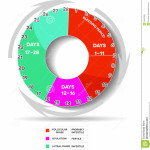I deal with so many women that need help through the 10 years of hormonal havoc that results just from being a women. I’m offering a FREE Webinar, Monday, November 30th. Register here. In case you are not certain what’s causing weight fluctuations, a feeling of being out of control, hot flashes, feeling depressed, losing your mind and/or are just plain “off”? If so here’s a blog posted awhile back.
Peri what? Most women don’t know that perimenopause is the 10 years prior to the onset of menopause. It can create the rockiest of moments and days. In the first half of the decade the ovaries reduce their production of progesterone. In the second half estrogen levels drop. A woman’s hormones fluctuate in this effort to eventually sputter out completely crossing the finish line at menopause. In this hormonal fluctuation, wild emotions, low libido, weight gain around the hips, hot flashes and many other symptoms can introduce themselves letting the woman know that menopause will be arriving. Many of you may be thinking…wow, 10 years is a long time. How do you know if you are in the peri-menopausal phase? And what can you do about it?
The assessment below was created by the great Dr. Sarah Gottfried. If 5 or more of these questions seem totally related to you then yep you’re in perimenopause.
DO YOU HAVE, OR HAVE YOU EXPERIENCED, IN
THE PAST SIX MONTHS . . .
■ Feeling far less jolly about doing the grocery shopping,
laundry, dishes, and cooking than you did, say, ten years ago?
■ A preference for social isolation combined with wardrobe
malfunction (you’re newly introverted, reluctant to wear
anything other than your yoga pants if you have to leave the
house)?
■ A need to unbutton your jeans to make room for the roll
around your waist, which seemed to arrive overnight?
■ Emotional instability—for the first time in your life, you burst
into tears at work when in a crucial meeting and your kid calls
with an adolescent crisis?
■ A lack of satisfaction with exercise, since it doesn’t seem to
affect your weight?
■A general feeling of blah or reclusiveness; do you find yourself
watching the clock and wondering when it might be socially
acceptable to extricate yourself from normal activities and retire
for the evening?
■ A problem sleeping (indiscriminant debates and ruminations
awakening you in the middle of the night)?
■ A habit of waking up so sweaty that you need to change
your nightgown and sheets, and perhaps even your husband
(or partner)?
■ A face with crow’s feet and a permanently furrowed brow?
■ A lack of attention to personal grooming habits (you really
don’t care how attractive you look)?
■ An attitude toward your children that’s less gung-ho and more
ambivalent than it once was?
■ A menstrual period so unpredictable that you don’t know
whether you’re in for spotting or flooding or some weird
combination of the two?
■ Sudden forgetfulness when walking into a room (knowing
you had a purpose but searching for clues as to what it was)?
■ A continual doubting of your own instincts and insights?
■ More frequent announcements to the family that “Mom’s going
to take a nap now” or “Mom needs a time-out”?
■ A preference for chocolate or a glass of wine over sex (which,
frankly, may just be your lowest priority)?
■ A notion that Zoloft or a little Prozac sounds increasingly
appealing?
■ An opinion that addressing your mood issues by giving up
sugar, alcohol, and flour, taking various supplements, and
hormonal tweaking sounds like way too much work?
Taken from Dr. Sarah Gottfried_The Hormone Cure
■
If you found that at least 5 of these symptoms represent how you feel and behave then know that you are not alone. You are officially in perimenopause and you have the black and white assessment to prove it (To Spouse: See babe, I’m not crazy). Hopefully by now you are feeling validated in knowing that there is a name for this symptomatic time in your life. So what can you do about it?
Join me in a FREE WEBINAR on November 30th, 2015 at 3pm PST. Register here.
Be well,
Lynn

 November 30th, 2015
November 30th, 2015  Lynn
Lynn  Posted in
Posted in  Tags:
Tags: 






